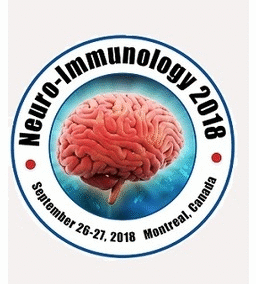International Conference on Neuroimmunology, Neurological disorders and Neurogenetics
Montreal, Canada

Tamara C. McGill-Carter
Chicago School of Professional Psychology, USA
Title: Voice It Out Loud: Viewing the World through Autistic Eyes Using Assistive Technology
Biography
Biography: Tamara C. McGill-Carter
Abstract
DeVillers and DeVillers (2014) and Iacoboni (2009) discovered that the ability for one to find their voice and actively engage in the world around them, mirror neurons take part in speech production. However, for several sets of children with verbal delays and who are non-verbal who Speech Generating Devices (SGD). The question posed is whether the devices are more effective in school settings considering the nature of communication and interactions that occur in that setting than other settings. Past researchers made convincing cases regarding the role of language development using SGD in several settings, but the one setting that has limited literature is SPG device use in the home (Thunberg, Ashlen, & Sandberg, 2011). More specifically, a child with definite understanding of their own feelings and desires, it is necessary to hear language used by them to understand what they most desire (DeVillers & DeVillers, 2014). We can observe behavior in expressing wants and needs, but the proper verbal expressions for that child’s age range can indicate the maturity of the ToM and development of the executive functioning for their stage of life (DeVillers & DeVillers, 2014). That would lead to the second case of how the child obtains the
information for a conversation. For example, when we hear someone try to get things that they want and driven by those wants, they voice and go to the place to get those wants. This approach to ToM development, therefore, focuses on the importance of learning words as labels for mental states (DeVillers & DeVillers, 2014).
What kind of language reflects or supports the developments of ToM reasoning to give researchers an understanding of the child’s maturity is what several studies seeks to answer. Recent research focused on the verbs that reflect the child's mental state (Devillers & DeVillers, 2014). Rarely do children express their own and/or another’s' beliefs until around four year of age. This study has been replicated with children who are slightly and moderately language delayed, but has not been studied with adults whom are non-verbal and severely delayed in language (DeVillers & DeVillers, 2014). Therefore, to fill the research gap, examining data provided by the population of non-verbal/severely delayed individuals using Voice Output Command Aides (VOCA’s) in either a school, home or day program setting will hopefully answer the researcher’s pressing research question.

